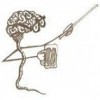An Intriguing Question
- Sooner28posted 13 years ago
0
An atheist at a presentation given by the philosopher William Lane Craig asked why, if the holocaust was morally abhorrent, is the flood not even more so? Hitler never favored the near extinction of the human race. The flood, if true, would have wiped out most of the population of the earth, without any recourse.
Or, to take another example the atheist didn't use: Sodom and Gomorrah. God killed 99% of its inhabitants. Americans were enraged after 9/11, which killed approximately 3,000 people. What if everyone in New York would've been killed? How is this morally justifiable?
This question is mostly to fundamentalists, who hold the story of Noah to be a literal truth. If anyone has an argument for why God is morally justified in wiping out 99% of the human race, and, later, 99% of an entire city, I'd be interested to hear it.I'm an athiest, but here's my understanding (former Catholic): if you believe in God from a Christian view, then there is no relativism so God defines good. Whatever He does is justified because he is the Absolute, he can give or take away.
And like you said, this means God can command ANYTHING to be moral.
A morality that promotes an "anything goes" philosophy is no morality at all.One of the myriad reasons I don't believe. But really, if God did exist, I think that would be justifiable because there really is nothing beside what God wants. Our belief that "Anything goes is no morality at all" would be superseded by the fact that He is, well, God. He calls the shots, you know?
If you are willing to accept that implication, then the debate would have to center on something else, which is this:
How do we know the will of God?If we knew for a fact that he existed, and he controlled the universe either directly by influencing it with some force or indirectly by allowing things to happen (which he foresees) then "everything"is his will. Of course, simply allowing things to happen implies approval, not direct action, so the argument could be made he doesn't will them (even if he approves them and makes no motion to stop them)... We might never know for sure what his will is, only that he allows/approves everything that happens.
As a software engineer, analyzing the "Will of God" is difficult but not impossible.
First you have to get past the conflicting interpretations of the Bible and look for common threads.
One common thread is that God is love. How do we accept this with Noah's Flood?
Simple! God doesn't love the Homo sapiens bodies. He loves His children. And Genesis 1:26 says that God created us in His image and likeness. Remember, God is not Homo sapiens! If you don't readily "get it," study this comment for awhile.
If your child is in a car wreck, you don't care what happens to the temporary vehicle. You just want your child back.
God's the same way! He doesn't care about the temporary "vehicles" we wear.Love is an emotion displayed by animals including human, so are you telling us that god is a human emotion?
So if the vehicles are not there, what is left?so by destroying people's minds with misery, it's ok if it is your god that did it? kind of a strange way of thinking and still saying i worship a "loving god"
LOL. That is one of silliest examples I've seen in a while, thanks for the laugh.
The car and the child are two completely different things. The wrecked car does not feel the emotions, the horror and the pain of drowning as we do. The wrecked car did not get wrecked because the driver willfully wrecked it as your ego-maniacal God did to people when he drowned them.A mindset as this sounds completely disturbing...really...really disturbing! Surely you don't really believe such horrid nonsense.
Your inability to accept human diversity is a little disturbing also.
This is an interesting argument, but it can justify almost anything at all.
As long as God doesn't kill you, he can torture your earthly body for your entire life. I'd rather die in a flood.
You also assume any action taken on the physical body by God is just not relevant to addressing the morality of God, since our "minds" are what is important.
I suppose if you want to take the view that God can do anything and everything to anyone at any time, you are free to do so. Unfortunately, I cannot call a God like that anything but immoral.Seems to me you missed a major point, Sooner. By killing everyone but Noah and family, God condemned them all to Hell, never giving them a chance to repent and join Him in heaven.
It may be true that He doesn't care about our bodies (or suffering) but He evidently does not care about the immortal soul, either.
"You don't want to follow My orders? Fine! Drown then, and spend eternity being tortured!"I would agree. I'm an almost atheist. I wasn't defending that view. I was responding to someone who argued for it.
Are you claiming that the flood story if true, would mean God was immoral also?I understood you - my reply may have been directed at you, but was intended more for others.
And yes, the God of Christianity and the bible is not one that I view as particularly moral. I would go so far as to say that the biblical depiction of God is much closer to an animal - I want, I take - and that it is far worse than any human has ever been. Keeping a private torture chamber for uncounted billions of souls, indeed!I promise you I am not baiting you. I'm more interested in what you believe, and I'm not going to argue about any points. I'm just curious about whether you believe in God, and if so, what conception of God do you have? If not in God, why not?
I don't take you for baiting.
I find the concept of the Christian God to be completely unbelievable; man has changed the story to such an extent that God is more of a spoiled, cruel and angry man-child, albeit it an omnipotent one, than an actual God. My response above as to missing the point shows what man has turned God into - a complete turn around from what man wants in a god, while claiming He is not as portrayed even as the stories are told.
While the concept of a creator making the universe is possible, I find it an extremely slim possibility. Man has searched for such a creature for thousands of years and has produced exactly zero evidence for it outside of man's own fears, wants and desires.Interesting. I'm mostly with you. Reading any of my hubs could easily lead one to believe that I am a militant atheist; sometimes, I do come across as such, though I don't classy myself that way.
I think the question, "why is there something rather than nothing?" is huge, and I currently don't know the answer, and I don't know if human beings can even answer it. The theist asking for an account of this is, I think, a fair question.Have you ever read Krauss' "a universe from nothing" or watched any of the presentations on the origins of life? It doesn't have to be "nothing". It could have been "something". That doesn't require a need for a god or a creator.
The theist question as to creation is most certainly a valid one and one that has been asked as long as man has existed. It has been asked by every branch of mankind, every religion and philosophy including atheism and is still being asked.
What is not acceptable, to me at least, is to make up a legend that "answers" that question out of the imagination of mankind. If the species lives long enough it may come up with a real answer, not simply one of folklore, fear and a desire to never die. Perhaps it will have a god in it, perhaps not, but at least it will have a correlation to reality beyond mankind's simple desires.
If the god of the bible were true, he is possibly one of the most immoral, tyrannical beings in all of history. The bible is full of genocide, slavery, punishment, reward. I think one of my favorite analogies used in describing the biblical god is one of a mob boss. Do what I say or else I'll break your legs. Obey me, and if you don't, I'll punish you - in this life and the next. It's blatant and obvious. The flood was only one example. The only thing you need to determine that the god of the bible is immoral is the concept of hell - incidentally, the victims of Noah's flood wouldn't be condemned to hell, hell didn't exist yet. The jews didn't believe in a hell, per-se - at least not the new testament incarnation of it.
The concept of hell, or eternal torture and punishment for finite crimes - the crime of just not believing in jesus - is immoral to the extreme. Do what I say, or else. If you're good, I'll reward you with a heaven where you can worship me and sing my songs forever. If you're bad, though, and you don't take my predetermined loophole (by which no one has to be held accountable for their actions) then you're going to hell forever.
It's abhorrent to think that, by the biblical model a rapist and murder can ask for forgiveness on his deathbed and be admitted into heaven. Meanwhile, his victims that didn't believe in god (and why would they, if god allowed such horrible things to happen to them) are doomed to an eternal realm of torture for simple disbeliefI agree - it's why I simply cannot become a Christian. Were I ever to decide that a creator was necessary, it most definitely would not be the God portrayed in the Christian bible. Or Koran or Tanakh. All portray a God of such pitiful morality that I would want absolutely nothing to do with it.
Hubpages really needs to improve their replying mechanism. I'm replying here to what you said below.
I'm not using a teleological why, presupposing there is some sort of overarching purpose to the universe. It's the question of all questions. Why does anything exist at all? If God exists, that would give some purpose to the whole matter, but the answer could possibly be had without God in a a way I have not currently conceived or considered.
I just don't conceive of any alternative to God as the origin of existence than an eternal universe or multiverse theory. The kind of God I would possibly be open to isn't a personal God that gives you a good parking space or heals your cold. It would be much more abstract. I want to understand someone like Paul Tillich, who believes in God as "the ground of being." http://en.wikipedia.org/wiki/Paul_Tillich This would be the only way I could possibly endorse the idea.If you go to the "chronological" view you can at least reply. I don't like it all, preferring the "threaded" but it does have that advantage.
Perhaps the key word in your post is "purpose", but that again is purely a construct of man's brain. Without a god, and maybe even with one, there can be no purpose. Why, then, do you demand that there be a purpose to existence? Sure, we would all like to think that there is a greater purpose to our lives, but there is no evidence that there is.
I demand no such purpose to the universe. Purpose requires an at least partially defined goal. I see no evidence of that in the universe at all, even if an abstract God exists.
I am of the opinion that human beings create their own realities when we follow the rules of whatever particular society we live in. If we all suddenly decided to live differently tomorrow, questions of purpose would change.
An abstract God existing would not really answer questions of purpose at all. For most theists, if I were to endorse this view, I would be considered an atheist or agnostic. I still wouldn't believe Jesus was resurrected from the dead, or that I am going to some sort of heaven or hell.
I'm currently figuring out my thoughts on the question of how creation could possibly work, to come up with an argument against the traditional theistic framework. Most theists claim something cannot come from nothing. They hold firmly to this belief, and believe it is their strong point in a debate with any atheist. At first glance, this appears to be so; however, they also believe in "creation ex niliho," which is creation from NOTHING. The theist mocks the atheist for claiming something can come from nothing, but then claims God somehow performed the same trick.Then I have read something into your post that you did not intend; my apologies.
Something from nothing; man's understanding of the universe includes that very concept and it is often seen in the world of quantum mechanics. I would have to say that you will not find the answer to your dilemma without many years of study in the field of physics and cosmology; it will not be found in philosophical thoughts or discussions. Reality and truth does not lie within individual perceptions of reality, but within the reality outside those perceptions. In the world that is, not the world we think is.
The theists solve the problem, just as you say, by claiming it can't happen and then promptly declaring that it did happen. If one is happy with that thinking, fine, but if not it will take years (or decades or centuries) to find a true answer. I don't believe that man's understanding of the big bang will be complete in my lifetime but while I'm disappointed in that it is something I have to accept.
No problems. Sometimes I am not always clear, and if a reader misunderstands what I write, I usually will blame myself on that.
I don't know if it is even an answerable question. It could be beyond the realm of human possibility. If nothing really is NOTHING, the absence of any properties whatsoever (which some people try to cleverly claim is a property, and with this I disagree), it is the height of the mysterious to claim that the absence of any properties at all could give rise to the multitude of properties we perceive in our current universe. That just seems absurd.
I'm in agreement with you that modern cosmology is probably still going to go through some drastic changes, if the history of science is any guide at all. There's also no real way to predict the turns it will take.
As for philosophical arguments producing scientific conclusions, it does occasionally happen. http://www.criticalpages.com/2012/steph … augustine/ I can't find a better source, but that one gives you the gist of it. The reasoning up to the conclusion that time and space began at "creation" (for Augustine) is flawed, but the conclusion actually turns out to be true! Quite amazing really. Not all of the ancient theologians were unsophisticated.Oh, it's probably not you - I very often misunderstand in these forums. It just isn't face to face, with body language, expressions and arm waving and I don't always get it.
These things seem absurd, I think, because they are so far out of our experience. Absolutely everything we have ever experienced has a cause and comes from something else. Even the energy of an A bomb comes from the mass there, although it is no longer mass.
Quantum mechanics is a very strange field to me because of that, and I doubt that anyone not truly studying and understanding it can really accept it at the gut level. It just can't be true even though all the top scientists agree it is, because I don't understand how it can be.
I suppose the ancients thought the same thing when someone first proposed that the moon was a globe circling the earth and we got over that; we'll get over the idea that something actually CAN come from nothing too, one day. Maybe.
And with that declaration of my own ignorance, it's past my bedtime. Enjoyed our discussion, Sooner - I'm sure we'll meet again in another impossible thread. In you ever find out out, for instance, just what a "singularity" is and what's "in" one, let me know.
I'm going to respond here to the Krauss claim, because the limit has been reached on the other end. I haven't read his book, but I've watched him debate William Lane Craig. I do plan on watching Krauss' lecture on youtube about nothing, and I'd love to buy his book, along with Victor Stenger's "God: The Failed Hypothesis: How Science Shows that God Does Not Exist."
Anyway, energy and vacuum fluctuations are not "nothing." It doesn't help at all that our understanding of the method of "creation" (for lack of a better term) is enhanced, because it still doesn't answer the origin question. Why does anything exist at all? Scientists are continually pushing their understanding deeper, but the answer to the origin question remains elusive.
The only way I can see this question avoiding God (deism) is by positing that the universe is eternal, just like scientists used to believe before Hubble and eventually Georges Lemaître proposed the Big Bang theory and ruined the steady state theory.Are you using "why" as in what is the cause or in the philosophical sense of a deeper meaning or reason?
To the best of our knowledge there need not be a cause for creation (big bang, call it what you will), and the philosophical "why" has no meaning in the world outside man's brain. It is completely a construct of man with no correlation to the world around us or at least no correlation that man has ever found.
Don't hold your breath waiting for an answer.
As a theist I will offer this. A very large local flood event happened. Some character who may have been called Noah survived with his immediate family because he had a raft or boat, and had the foresight to rescue his livestock and some wild animals as the flood waters began to rise. He had a dim view of his neighbours, believing them to be lacking in morals. He reasoned that God caused the flood as a punishment for the sins of his community.
Sure it's pure speculation, but it seems a lot more reasonable than a literal interpretation. It also gets God off the hook because it is Noah himself attributing the act to God as ancient people were want to do in an effort to explain catastrophic events.Very creative, but the answer is likely a bit more simple but more profound and interesting.
Let's say the Flood was worldwide -- water created from nothing or gated (ala Star Gate technology) to Earth. What records would such a Flood leave, geologically? I dare say not much. Erosion would likely have been nonexistent, because most of the water came from the deep.
God was protecting His children by the Flood. Yes, protecting!
Genesis 1:26 says that God created us in His image and likeness, and get this: God is not Homo sapiens. Do the math! Connect the dots on this. Everyone here is looking in the wrong direction.Only nothing can be created from nothing, not water.
There is no flood whatsoever.
Even if we grant a flood, it was not Noah god was protecting but Gilgamesh.
Well thinking about that, isn't everybody God's children? Are you accusing god of partiality? Will you kill your children, if they didn't do as you told them?
Good question. If God created man to be in His image which is all good, then why can't He destroy what he created and start all over again. Hitler didn't create man Hitler wanted to be God. What Hitler did was wrong, no bones about it! My grandfather was an Auchwitz (sp) survivor and never recovered.
what hitler did WAS wrong and no one would argue that point, but it pales in comparisson to what god has done, ordered and commanded. god wanted his people to wipe out whole groups of people. He was a genocidal maniac on a bloodthirsty killing spree, even stopping the sun for Joshua to make sure that everyone died. the god of the bible makes hitler look like shirley temple.
Isn't that because God wanted people to be good and not evil? He couldn't kill the devil because the devil was His equal of sorts as the devil was God's #1 Angel. Quite the debate which will go on forever.
According to theology, the devil is nothing like gods equal. He's not even gods enemy. God created the devil. God created evil. God created human beings, knowing what would happen ahead of time, then got angry when it actually happened and killed them all to start over. Makes a lot of sense.
God did not create "the devil". He created an angel who became jealous and wanted to be worshiped by humans. His free will allowed him to become the devil, or Satan.
Interesting?
But was this angel a complete fool, he was in front the most powerful one who created him, who could kill him with just a word?
Is it God's free will that allow this angel to roam till the end of the world?
And did god want humans to worship him?If that is true, then how is commonly interpreted that angels don't have free will? That's why god had to create human beings, isn't it, because he didn't want a bunch of robots that had to do what he said? How, then, did lucifer turn away? Lucifer had absolute proof that god was real. He knew that god existed, and if god is really like the bible tries to describe, that god is good. He didn't want anything to do with him. Either angels have free will or they don't. You can't have it both ways.
If god is omnicient, then he knew what Lucifer would ultimately do. Ironically, according to the Old Testament, Lucifer isn't a "devil" at all. He's an adversary. He's free to walk right into heaven and make bets with god that involve torturing his loyal followers. Gods cool with it. If i had a nemesis or an enemy they wouldn't be in my house. The stories are absurd. The bible says god creates evil. Isaiah 45:7. God created Lucifer, and had foreknowledge that Lucifer would turn against him. He did it anyway. It's like Jesus choosing Judas as a disciple, knowing that he would betray him. The fault lies with god, ultimately. Without a "satan" there would be no need for god.Everyone here is missing the whole point, the reason god did all of this, the devil, evil and pain and suffering is he had faith in humans and wants them to have faith in him.
There is no reason to have faith in him. He's an egomaniac that tortures people to make them turn to him.
If that is the case, then hypothetically a man who has a wife and 2 children loses his job and can no longer afford to keep his family should just tell them to move on because there is no reason to have faith that he will bounce back, right?
The scenario you brought up doesn't require faith. It requires trust. Trust is believing something based on past experience. Faith is believing something without justification or proof that backs up that belief.
But what your forgetting is that the flood waters receded, there is your justification for faith that god is not as you quote"an egomaniac that tortures people to make them turn to him" the definition of egomaniac is someone who is out to create a distorted image of themselves to convince someone that they are something they are not. God is good and has proven it many times in the past.
nothing proves that the god you believe in is good. Sure, the flood waters receded (not that they ever happened anyway) but he still killed every man, woman, child and animal supposedly that was not on that boat. Then the guy that he said was the best man alive got drunk and naked and cursed one of his children forever to be a slave. Your god is an egotistical maniac that regretted his perfect decision to make human beings to begin with and decided to start over since they apparently couldn't remember he existed at all. That's a mob boss and a tyrant. Not a good, smart god.
God may have killed every man, woman, child and animal that was not on that boat and that was because like some people this day in age, they did not believe in him and therefore did not build their own boat to survive in the flood. If mankind had not lacked faith in god they would have no reason to believe that the earth would not be flooded after noah had told them it was coming but , instead they continued in their faithlessness, and therefore suffered the consequences. If you tell someone about something that their doing is greatly offensive to you, wouldn't you want them to take it to heart that you would like said offensive action to cease?
you're attributing human attributes to a being that you claim is above all of human emotions. If I tell you that your blind faith is offensive to my sense of reason, you would likely dig your feet in and do it anyway - you wouldn't try to stop the offensive behavior because you, for whatever reason, believe that you're in the right. A perfect, all-knowing god has done nothing over the course of human history to prove that he's right. The global flood never existed. The creation and the garden never existed. The bible is nothing more than a story book that is taken as a whole by people who don't require any sort of evidence to justify their blind faith. They either want the reward promised, or they fear the repercussions of not believing. There is no evidence to back up anything you're saying at all. Have you read the bible? It's contradictory and ridiculous at best - at worse, it is a handbook dictating the impossible will of a mob boss who threatens people of small-minded natures to believe in him or else go to hell forever.
If you could prove with certainty that the god of the bible existed today, which you can't, I would refuse to worship or acknowledge such an immoral, stupid dictator. I would rather go to hell (if it existed) than pay homage to that being. And this statement is coming from his former missionary, theological student and more - someone who has read the bible in multiple languages dozens and dozens of times. I'm now an atheist - and I'd bet money that i know your god's book better than you do.additionally, do you not realize that all you've been doing is trying to justify your divine, cosmic being's immorality? You're a human being, and you're having to make up excuses for your supposed god. If you're more moral than your god, what kind of a god is that? A ridiculously absurd and immoral one, if he's relying on his inherently sinful, worthless creation to defend him.
Highly doubtful, but it was fun debating with you anyway, most people develop beliefs at certain points in their lives and it is usually the beliefs they stick with forever, in other words it very rarely ever changes even if you could beyond a shadow of a doubt prove the correctness of your view. It's just human nature. Thanks for the debate
That story isn't in the bible at all.
I guess "might makes right" is the moral of the story?
However, if Hitler had actually been God, then it would have been perfectly right to do what he did, because "might makes right" is the highest moral concept in existence...apparently.No. Because in this world view God is source of all that is right. Not because he is all powerful but because he is all knowing and benevolent. It is not a utilitarian ethic.
These are the starting assumptions. Just as my starting assumption is no spiritual entities of any kind exist. I can't prove that, I just feel it to be true.
At the end of the day you have to accept that people differ in how they comprehend the world at a basic level.Are you recognizing God as benevolent, or taking it on blind faith?
I've already answered that question but fine, lets do it again:
I was asked to explain the literalist Deist position. It is indeed based on faith. That is the first step in understanding it. Then you understand the faith is that God is omniscient and benevolent. The rest follows from that. I honestly don't know why that is so hard to understand.
I'm an atheist. i just have the ability to put myself in someone else's place and see the advantage of being in a multicultural society..
Your question makes the people seem innocent. The people made covenants with God, they knew the laws and they knew the consequences. They broke the laws, and they faced the consequences. They made the choice.
Look at it this way, if we made the law that murder was wrong and every murderer would be put to death then ensured that everybody knew about this law, we would follow through with the consequences when those few people decided to murder anyways. If we didn't we would not be fulfilling our role as just judge.
These were people who knew God personally. He provided for them, and he asked that they keep his laws or else they would face the consequences. They knowingly chose to do otherwise and God fulfilled his promise.
Look into what the people were doing. In cases like Sodom they were walking around in groups gang raping men. Would a good judge let that continue, or would they pass judgement?So..
Every single person in Sodom and Gomorrah, or the entire world in the case of the flood, was a murderer?Umm I am pretty sure I didn't say that. Perhaps you should reread what I said? I was using an example. Or you can read the Biblical accounts and find out for yourself exactly what they were doing.
So breaking a covenant with God is grounds for extermination?
What kind of covenant would have to be broken to warrant MURDER?Murder is considered a wrongful killing.
Perhaps you should find out exactly what this covenant entailed. The conditions to be met by both parties of the covenant.murder, or wrongful killing would apply to all innocents and children under the age of reason that were killed in the flood. They apply to all the babies, children and innocents killed in the mass genocides that god ordered. to say god is pro-life is so ludicrous that it's laughable.
I think the term, morally abhorrent, is not a strong enough description of the holocaust. It was abhorrent in an absolute sense. The holocaust and the events of Sept.11 were the results of actions taken by criminal minds in modern times, as the flood was a natural event of the long past, which was ascribed to God or the gods by ancient writers, with the emphasis the gods' role being with the escape of this event. The question of God being morally justifiable in anything is outside of the realm of my own personal beliefs in a higher power, but my beliefs are I think irrelavent in this matter and by making these comparisons we may be taking these modern events a bit, or maybe much, too lightly.
This is a question that will show the self righteous nature of many a man.
For they quickly and easily condemn a God of whom they are willingly ignorant, thereby heaping condemnation upon their own heads.
Firstly they make God into in man, and subjected to the rules (morality) of men so as to justify their own unrighteousness through their condemnation of Him.
Now consider if you have made God less than what He is in order to heap condemnation upon him,
Will not those same rules to be applied yourself?
Thus giving the beast of the fields, every flying and crawling insects and whatsoever living creature you consider lesser than man, of which you exercise dominion,
These will stand in judgement against you and will undoubtedly find you Just as guilty as you have laid charges against God.
So just as you condemn God so these would condemn you.
But if you take the time to find that God is beyond any and all condemnation, then you would also find that you yourself is exactly the same.As a Christian, I know those stories are untrue in respect of them coming from God. Anyone doing research into these stories know they are pagan.
How do you not understand how this works? It is not even marginally hard to fathom.
Because "God said to."
The god you are referring to here gets a pass on morality. Have you even read the book you are pulling this stuff from? If you have a supernatural, magical, mega-being backing you up, you get to do whatever you want. You just have to believe—or say—that God told you to, and you are golden to perpetrate any amount of cruelty and violence you like.
The only thing that complicates this at all is whether the people doing the barbarity actually believe it, just say they do, or work to eliminate both in favor of some other belief set. Usually there's a combination of the first two. The clever, wealthy and powerful claim to believe so as to get the dumb and gullible masses to go along with their plans to stay wealthy and powerful. Sometimes the third option holds up the damage the first one has done (which is sort of where we are headed now), and they claim "righteousness" by discrediting those who claimed to have it before. Intellectually, it's all fascinating Having to live through the waves of idiocy, however, is always painful. Religion is best when it keeps itself in the private places of individual homes.I'm an agnostic who might call myself an atheist if you ask me on the right day. I agree with you!!!
I was asking for a defense from a christian perspective, to see how any theist would possibly try to defend such an action.I asked similar or same questions and the best answer I got I'd that one could kill one's kids if they are disobedient and hopeless. Most of the time they just ignore the question or say don't judge god.
hubpages.com/forum/topic/106541#post2271177
What's being stated here is basically Euthyrphro's dilemma. Is something good because good commanded it, or does god command it because it's inherently good. There are more Eddystone about the flood that could be raised as well, such as how does a supposedly perfect, omniscient being regret something enough to wipe it out?
If you believe God is omniscient, omnipotent and benevolent--he by definition gets a pass on morality. he is morality. What ever he did must have been moral even if we mere mortals don't see how.
What is so confusing about that? It is internally consistent and requires only that you be capable of understanding that some people believe different stuff from oneself.Yes, but the problem is with "What ever he did must have been moral" part. It will justify genocide, it will also over throw our present morals and push back as to the barbaric era. But it should also stop Christians from asking not to kill, especially if the god turned out to be Allah or Zeus.
But that is only a problem if you don't believe God is omniscient, omnipotent and benevolent. If you do, there is no problem.
Not all people are secular Utilitarians. They actually genuinely believe different stuff. Ergo they will do things we think are wrong, because they genuinely think they are right.
That's the human condition.Em! It also means there is no absolute morality. Then benevolent god too is out of question!
It means God is absolutely moral by definition, and is the only arbiter of what is moral for humans (which is different from what is moral for him. e.g. it is moral for me to remove my dogs testicles, it is not moral for him to do the same to me).
But I guess you just can't put yourself in another person's shoes when it comes to these things.here's the problem with your assertion, though.
When that god commands people not to kill, then commands them to go out and wipe out entire cultures of people, including men, women and children, that god's morality is inconsistent. When that god dictates laws that dictate how severely you can beat your slaves, that a woman should be forced to marry her rapist and that disobedient children should be exectued, I AM more moral than that god. When a god commands things that are blatantly immoral, that god is a tyrant, not a supreme intelligent, benevolant being. Why would you want to worship that, if you're smart enough as a human being to recognize that it's immoral, but the god you worship is supposed to be more moral than you are?If you believe in BIG-G God, you believe he must be even smarter and nicer than you -- and therefore when you doubt him, you are wrong.
I guess that's the problem. I can't believe in a "big-G god" when his "word" makes him an immoral monster who can't even prove he exists.
I understand that.
But other people can.Sure they can. A lot of people can believe in Bigfoot or that they were abducted by aliens, too. That doesn't make those beliefs true.
Everyone believes that what they think it true.
It is an unwillingness to leave room for other peoples "truths" that leads to those genocides we actually have control over--the ones committed by people.Actually, a lot of people believe what they WANT to be true, or they don't actually care if their beliefs are true or not.
"people will believe in any lie, either because they want it to be true our because they're afraid that it is"And still if it makes them feel that is true, that is their truth.
truth is not defined by what people feel. Something is either true or it's not. How you feel about it really has no relevance at all.
There's still an epistemological problem of knowing what God commands to be moral, and what he commands to be evil.
Furthermore, if whatever God wills is moral, then it's absurd to condemn anyone who kills or rapes another if they are can prove they are doing the will of God. If God is omniscient, omnipotent, and "all good," and happens to be Allah of the Koran, and the Koran orders unbelievers to be killed, the moral thing to do is kill unbelievers.I already addressed that by saying we cannot assume that conduct moral in a God is moral in a human--by drawing the parallel between what is considered good behavior in a person versus in a dog.
An omnipotent God might somehow know that causing one person to achieves a greater good that is incomprehensible to us.
If one assume God to be benevolent, one assumes this to be the case. Because in this world view there is no moral standard against which you can measure God. The goodness of God is a starting assumption arrived at by faith.It's a cop out.
God may have "morally sufficient" reasons allowing the current evil in the world. Maybe the devil has "morally sufficient" reasons for his rebellion. We don't have his perspective at all!
But you have not addressed the epistemological problem of how we can know the commands of God. I can assume what you say is true, but then how can I determine what God is actually commanding? Do I just guess?
Beautiful, @psycheskinner. This is a delightful perspective.
As owner of the entire universe, God gets the make the rules. Who are we to complain?
He is commenting about the biblical god and according to the bible he is neither omniscient, omnipotent nor benevolent.
And such is interpretation. So many versions and so little truth.
Thanks for your interpretation. I've seen far better.
You say, "according to the bible," but what you really meant was "according to my interpretation."
That's where so many Fundamentalists get off on the wrong foot. They say, "the Bible says," but what they really mean is "my interpretation says." Big difference. I hope you can handle it.
(PS: Neither/nor is a two-part construct -- not three)It is according to the bible god regretted,
It is according to the bible he killed,
It is according to the bible god couldn't defeat Israel's enemies because they got iron chariots or Jesus couldn't perform miracles because people didn't believe him.
What you are saying is my interpretation is wrong because you didn't like it and yours is right because that make god look good.
But if god created everything god created humans the way they are. God need not punish for someone being himself.
Humans should punish to maintain 'their' society. The punishment most of the time won't correct, but keep the offender away from doing further harm.In that humans are behaving as humans, not god. Even then we don't punish children, mentally retarded or mad people, why? The same reason god shouldn't punish a human. If he did, it will make him human, not god.
@Sooner28 said, An atheist at a presentation given by the philosopher William Lane Craig asked why, if the holocaust was morally abhorrent, is the flood not even more so? Hitler never favored the near extinction of the human race. The flood, if true, would have wiped out most of the population of the earth, without any recourse.
@Sooner28, this is a brilliant question, but do you really want to know the answer? Because the answer is extremely simple, but not easily assimilated by an atheist. I hope you're up to the challenge.
The Real Reason for the Flood
Let me start with an analogy:
If a parent was called by authorities that their daughter had been in a massive pile-up on the freeway, would that parent mind if the car their daughter was in would be destroyed in order to rescue the child? Would authorities even have to ask?
No offense intended, but that's how silly your question sounds to me. Noah's Flood was an action taken by God to protect and to rescue His children. And (you have to pay close attention to this in order to understand) God is not Homo sapiens. I could draw you a picture, but I'll let you connect the dots on this one.
Sodom and Gomorrah -- Same Problem, Different Scope
@Sooner28 said, Or, to take another example the atheist didn't use: Sodom and Gomorrah. God killed 99% of its inhabitants.
Same difference! Only this time the threat to His children was more localized. That threat could've been worldwide if left alone, but having the threat confined to 2 towns made it easy to stamp out that threat.
I write more in depth about this "solved" threat in my Genesis series of hubs and in my Hub on Noah's Flood.
Much more was at stake than the temporary vehicles (bodies) God's children were wearing.
The Real Reason for Outrage About 9/11
@Sooner28 said, Americans were enraged after 9/11, which killed approximately 3,000 people. What if everyone in New York would've been killed? How is this morally justifiable?
Is it morally justifiable that people continue to hide their heads under the sand on the truth of 9/11? I only discovered the truth a year ago, having spent a decade believing the Bush administration "conspiracy theory." What a "theory" that was. It had the full force of the government and the Corporate Party media propaganda machine behind it. That made it hard to consider other possibilities.
But little facts like "felony" destruction of crime scene evidence by the government have to make you wake up at least a little. Destruction of the WTC crime scene evidence began immediately, months before the official investigation began. Kind of takes your breath away, doesn't it?
Living 5 years overseas, I had weaned myself of the Corporate Party news. Long had I heard that the American press was biased and dismissed that idea as bogus, until a year ago. Then I realized the truth of that statement. There's enough truth in the news to make it seem right, but enough lies to divide the country and to hide the full truth in plain sight.
Goebbels would've been envious at how smoothly they've pulled this off. And George Orwell would groan at how far they've come in making words mean new things -- war is now "peace keeping action," and people who bring up 9/11 facts and serious questions are now "conspiracy theory nuts." Truth is demonized in order to hide it from the masses.
I find it laughable that some fellow hubbers think that questioning authority about 9/11 is somehow "unpatriotic." America's founding fathers would be troubled by that attitude. Those early Americans did nothing but question authority. That's how America came into being.
Several tons of iron microspheres in the 9/11 dust prove that controlled demolition was used. And controlled demolition proves that 9/11 was an inside job. And there are hundreds of other facts that prove or strongly suggest that 9/11 was an inside job (likely government and/or corporate). Al Qaeda? That was a CIA operation. And the CIA was one of the tenants in WTC7 which also collapsed at gravitational free-fall on that day.
Add to that the asymmetrical damage and the resulting symmetrical collapse of all 3 buildings. Such things don't happen in the real world, unless controlled demolition is involved -- explosives and thermitic cutter charges. And lo! Nano-thermite was found in the dust -- some unreacted and some partially-reacted with droplets of previously liquid iron still attached.
The government admits that the fires were not hot enough to "melt steel" (or iron), but here we have tons of iron that had been molten during the collapse!
You can find a great deal more proof and thousands of professional scientists, engineers and architects who have risked their careers by signing onto the 9/11 Truth movement at,
http://www.AE911Truth.org
Is the Owner of the Universe Justified?
@Sooner28 said, This question is mostly to fundamentalists, who hold the story of Noah to be a literal truth. If anyone has an argument for why God is morally justified in wiping out 99% of the human race, and, later, 99% of an entire city, I'd be interested to hear it.
I'm not a fundamentalist, but I am a non-denominational Christian with a long history of questioning interpretation and dogma.
I don't particularly like the idea of "might makes right." The USA is using this falsehood to the extreme. And it's setting up America for a big fall -- that and the reckless and skyrocketing debt, now at $16.3 Trillion and Accelerating! The Power Elite who live in America despise this country. They want it removed so they can usher in the New World Order that Bush Sr. gushed about on 9/11 in 1990 -- exactly eleven years before their pivotal day -- their salaciously anticipated New Pearl Harbor.
No one knows what the "crime" of the Sodomites really was, but one hint in the literature likely nails it -- bestiality. The crime behind the need for the Flood was similar -- mixing genetic material, threatening the future formation of civilization and the possibility that God's children could build the institutions that would help them free themselves from this physical prison.
To an atheist, such an idea is as strange as "nuclear physics" would've been to the farmers with their pitchforks who attacked the Montgolfier brothers back in 1783, when those French brothers tested their hot air balloon.
I have an easier time understanding such things, perhaps because I have experienced being outside of my physical body. I have seen the universe around me without the need for human eyes. Only last week, after 41 years, did I finally understand why that spiritual state did not persist. And now, I understand why our escape is so difficult. Ego is the barrier, and ego does a very seductive job of making us think that ego is the real us, instead of the true self being the catatonic child of God within.
Now, I understand what Yehoshua of Nazareth meant when he said that we need to be born again. For a moment, I received a glimpse of that "born again" state in 1971, when I walked the corridors of space sans corpus. I now understand what he meant when he said that those who save their lives will surely lose them, and those who lose their lives for his sake will gain everlasting life. He was talking about ego. Ego must die in order to allow the true self to awaken. Once spirit holds our consciousness (as it did briefly for me 41 years ago), we will have everlasting life, because when our body dies, consciousness will not die with it. Ponder that for awhile, if you dare. Or grab a pitchfork and attack that for which you do not understand.The simplest explanation is this. If you believe in the Christian God, then you believe that God is perfect. God creates everything. A perfect God can do no wrong. So out the door goes the concept of sin as being wrong. Sin is God created and therefore has to be perfect, not something one should be punished for.
So, you see the conflict with the whole concept? Why would this God kill off people? He created all persons.... He is a perfect God, so all of his creations have to be perfect, therefore they can not do wrong or evil in his eyes.....if they did, He would not be perfect.Believe in the Christian God

http://game-avatar.net/phien-ban-game/t … -200-1839/
What about modernization in 2012 children? occurred?
http://chondeal.com
Related Discussions
- 153
Are Atheists morally superior to believers?
by Rishad I Habib 15 years ago
Atheists sometimes claim that & they do have some reason for such claims. Whats your views on this? & WHY?Remember, exceptions should not be examples. We are talking about the majority of the group not individuals.
- 53
Theists Hurt Themselves When Defending God From Evil
by Sooner28 12 years ago
William Lane Craig, the eminent Christian philosopher, claims in response to the problem of evil:"1. We are not in a good position to assess with confidence the probability that God lacks morally sufficient reasons for permitting the suffering in the world. Whether God's existence is...
- 13
Are atheists morally superior to religious people?
by Gaizy 14 years ago
Are atheists morally superior to religious people?Most atheists are good because they feel that it is the moral and right thing to do, but most religious people are good because they fear reprisals, or not being "saved" in the afterlife. Does this make atheists morally superior?
- 13
Do you think religion compels morality, or does morality determine religion?
by lanablackmoor 13 years ago
Do you think religion compels morality, or does morality determine religion?Obviously the relationship is somewhat multi-directional for most people, but I'm wondering which you think is more powerful. Do people usually choose a religion that aligns with their preexisting morality? Or do they...
- 21
To You Atheists, If No God Exists To Be Obeyed, How Do You Expect Us To Be Oblig
by ngureco 13 years ago
To You Atheists, If No God Exists To Be Obeyed, How Do You Expect Us To Be Obligated To Be Good...To Other People?
- 34
What holds more weight, Morality or legality?
by Kenneth J Moore Jr. 13 years ago
What holds more weight, Morality or legality?I'll use a two people example first: Penn State which legally fulfilled their obligation but morally let kids get molested. Second: Mitt Romney legally becoming wealthy while morally didn't invest in America. This can be said for marriage, Religion,...























